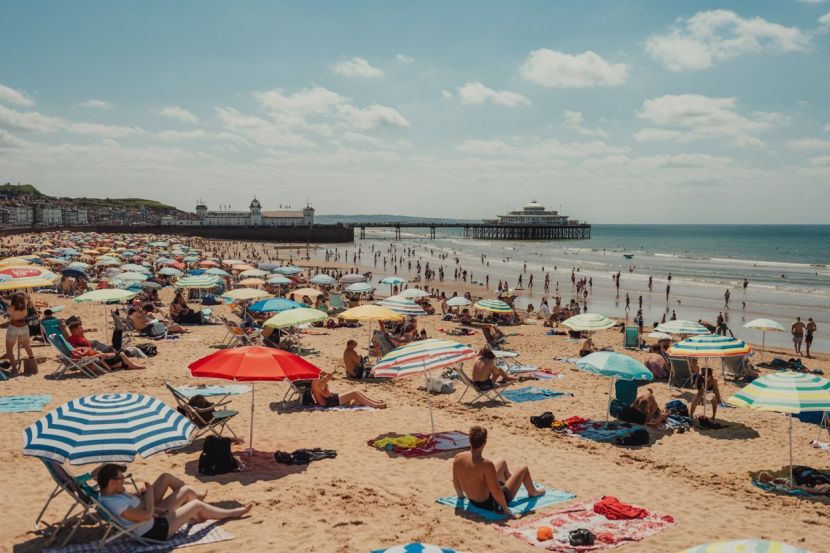Published on
September 4, 2025
Inflation in the eurozone has edged above 2%, unsettling travellers from the UK who flock to Europe for holidays. For many, higher prices mean carefully saved budgets will no longer stretch as far as they once did. The latest figures show headline inflation reached 2.1% in August, surpassing the European Central Bank’s target. While the shift seems minor on paper, the impact on daily holiday spending is already noticeable for visitors.
The surge has been driven by stronger demand in the 20 countries sharing the euro. Rising household consumption, wage growth, and easier credit conditions have provided momentum. For economies within the bloc, this is a sign of resilience. For travellers, however, it presents a dilemma: every element of a European holiday is becoming more expensive.
Even essentials such as breakfast in a local café, a train ticket between cities, or a tank of fuel for a rental car now carry a heavier price tag. Though one or two euros extra may not seem much, the accumulation across meals, transport, and accommodation can dent a holiday budget within days.
The dream of sipping coffee in Paris, taking canal cruises in Amsterdam, or unwinding on Spanish beaches remains strong for British tourists. Yet the financial realities of inflation weigh more heavily this summer. Car rentals are up, too, and petrol stations across southern Europe have posted some of the steepest fuel hikes in recent years.
For families, the cost increase feels sharper. Parents trying to manage meals, excursions, and admission tickets for children discover how quickly small mark-ups compound. With sterling fluctuating against the euro, many travellers find their pounds do not buy the same carefree vacations they once did.
Core inflation — which strips out the often volatile food and energy prices — has also risen to 2.3%. For tourists, this means costs are not confined to a few sectors. Instead, inflation touches nearly every experience:
- Food: Dining out is central to travel. Visitors will notice set menus, evening meals, and drinks creeping upward in cost.
- Fuel: Road trips are less affordable. Rising petrol and diesel prices push up car hire packages and transport costs.
- Stays: From boutique hotels in Florence to seaside resorts in Portugal, accommodation prices reflect heightened demand and inflationary pressure.
This squeeze makes the casual luxuries of holiday life, buying artisanal pastries, booking last-minute tours, or upgrading seats on flights, less accessible.
The timing compounds the challenge. Brits returning to European travel after a challenging few years are facing slimmer margins. Holidaymakers often budget months in advance, but these plans rarely account for sudden inflationary jumps.
For those chasing value, destinations outside the eurozone become more attractive. Cities in Eastern Europe, Balkan resorts, or non-EU Mediterranean spots such as Turkey may entice holidaymakers seeking more favourable costs. Yet for those drawn to Europe’s cultural capitals or golden coasts, options are narrower: cut the trip shorter, scale back activities, or simply accept spending more.
At the same time, stronger local economies and higher wages in eurozone countries mean many destinations remain busy. Restaurants, hotels, and attractions see heightened domestic tourism that maintains pressure on prices—even before foreign visitors arrive.
Despite the financial headwinds, travellers can take steps to protect their budgets:
- Book flights and stays early: Early planning can lock in better deals before prices climb further.
- Diversify destinations: Travelling to lesser-known European towns can deliver cultural richness without the heavy costs of major capitals.
- Mix dining styles: Alternate between restaurants and local markets to balance indulgence with budget-friendly meals.
- Use public transport: Train and bus networks remain efficient and cheaper than car hire in most regions.
- Track exchange rates: Monitoring sterling against the euro can help in timing currency exchanges wisely.
Creativity and careful planning allow the European holiday spirit to survive even in tight conditions. For many, the memories remain worth the squeeze.
The European Central Bank may face pressure to weigh inflation-targeting measures later this year. Yet travellers cannot rely on quick reversals. Inflation often cools gradually, and demand for tourism remains robust. The reality suggests higher expenses may linger into the next travel season.
For UK tourists eyeing a trip to Europe, the message is clear: expect to spend more, and plan with inflation in mind. Those spontaneous extras, an unplanned gondola ride, a round of tapas, or one more night at the resort, now demand closer thought.
But while financial concerns shape choices, the allure of Europe remains irresistible. Its cities, beaches, and landscapes continue drawing millions, regardless of price trends. The challenge for travellers is learning how to balance cost with experience. Inflation may shrink budgets, but it cannot diminish the wonder of exploring Europe’s timeless destinations.
